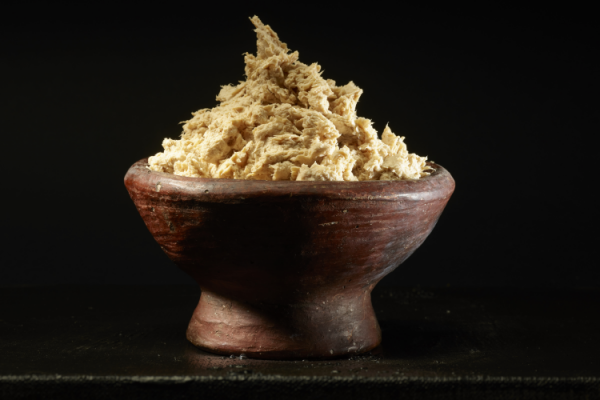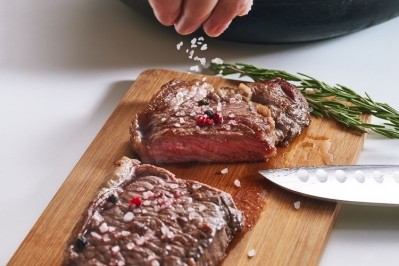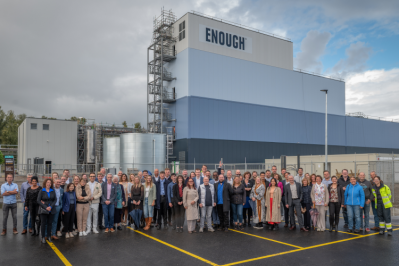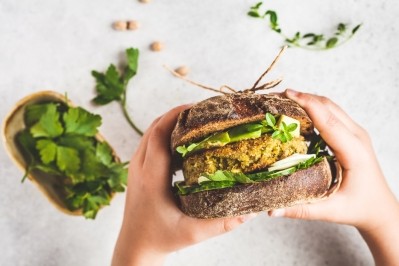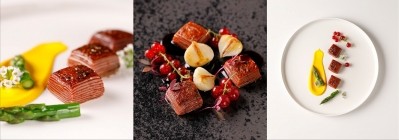ENOUGH and MeaTech3D collaborate the next generation of meat alternatives... ‘Hybrid products with cultured meat’
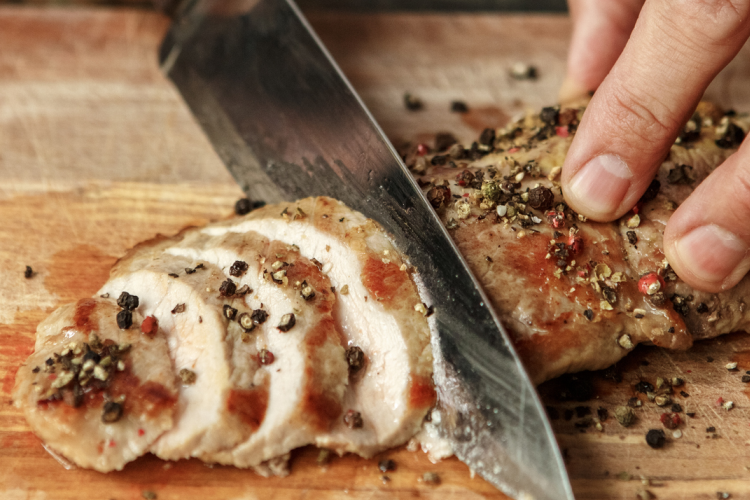
Plant-based meat analogues have seen surging growth – and this is expected to continue. Insight provider Markets and Markets forecasts a compound annual growth rate of 14% for the sector through to 2025, when global sales are expected to top $8.3bn annually. However, the industry continues to face formulation challenges in the bid to broaden its appeal to meat-reducers and flexitarians who want a ‘meaty’ experience. Product developers are working to develop increasingly meat-like formulations that don’t fall flat on qualities like texture, mouthfeel, and flavour release.
Fat is an important part of this picture. Plant-based fats don’t match the performance of animal fats. Many are not solid at room temperature and those that are, like coconut oil, will melt out of the product when it is cooked. The result can be a plant-based sausage or patty that is drier than its animal-based counterpart and doesn’t produce the same flavour and aroma release when chewed.
According to Israeli cultured meat innovator MeaTech 3D Ltd, there is a ‘large business potential’ for the existing extensive portfolio of processed meat products like nuggets, burgers and sausages to be combined with cultured meat for an optimised organoleptic profile. “We see in the novel planet base market as a huge potential,” explained Michal Forkosh, VP of Global Marketing at MeaTech3D. The company says this cellular-plant hybrid combination is currently an ‘emerging’ area of the alternative meat landscape.
‘Supercharging’ alternative meats
The cellular meat company, which is listed on the NASDAQ stock exchange, takes stem cells from animals and – using a growth media and clean energy – grows muscle and fat cells in bioreactors. The group’s Belgian subsidiary, Peace of Meat, has entered into a partnership with fellow European food tech group ENOUGH to accelerate innovation in this hybrid space. “Peace of Meat, MeaTech’s wholly owned Belgian subsidiary, has signed a joint development agreement with ENOUGH to accelerate its go-to-market strategy for the next generation of meat substitutes – hybrid products with cultured meat,” Forkosh told FoodNavigator.
ENOUGH is a business-to-business supplier of mycoprotein and the Scottish-headquartered company is currently building the world’s largest ‘new protein’ facility in the Netherlands. The group’s fungal mycoprotein, ABUNDA, is a ‘complete’ food ingredient that contains all nine essential amino acids and is high in dietary fibre and protein. It is described as ‘light in colour, neutral in taste and fibrous in texture’. It is grown by feeding fungi sugar feedstocks sourced from sustainable grains in a large-scale continuous fermentation process.
In this ‘first of its kind’ collaboration, the companies believe that their complementary capabilities will allow them to jointly explore the benefits of including cultivated fat biomass within product applications. The joint development agreement will use Peace of Meat’s expertise and focus in cultivated avian ingredients to add ‘authentic meaty flavours and textures’ to recipes using ENOUGH’s mycoprotein.
“We are looking at whether cultivated fat can bring taste attributes to fermented foods that can supercharge the experience of our fermented foods,” ENOUGH Commercial Director Andrew Beasley told FoodNavigator. “Plant fats don’t deliver the same experience yet that animal derived fats deliver. Look at margarine versus butter. By mimicking animal fats, succulence and deliciousness can potentially be optimised. Together with the natural attributes of ABUNDA mycoprotein to produce fibrous whole muscle chicken, we can create the best consumer experience.”
The work will initially focus on ENOUGH’s application to XPrize Feed the Next Billion food challenge. As a semi-finalist in the 15-million-dollar competition which targets scalable whole cut alternatives that mimic animal protein, the group is already producing whole muscle chicken formats that it demonstrated earlier this year, serving 1,000 guests at Future Food Tech in San Francisco.
Acceptance of cultivated ingredients
The timescale to bring hybrid products to market is still dependent on regulatory approvals. To date, authorities in Singapore are the only regulators to green light the sale of cultured meat. However, ENOUGH and MeaTech said they are ‘encouraged’ by the recent move from the Netherlands to legalize the sampling of cell-cultured meat products.
But when these hybrid products do hit the market, who will their core consumer be? After all, they won’t be classed vegetarian or vegan… “I would like the industry to stop using terms such as vegan and no-meat. This is a limiting factor, just a little bit too popular today,” ENOUGH’s Beasley said.

For ENOUGH, it isn’t a question of plant-based versus animal proteins. Instead, the focus should be how to transition to a sustainable food system that can feed the growing global population without exhausting the planet’s natural resources.
Data released by the company reveals ABUNDA uses 97% less feed than beef, 80% less than chickens and 40% less feed than soya beans. It is also significantly more water efficient, using 93% less water than beef, 55% less water than chickens and 29% less water than soy. The company reported that its carbon emissions are 97% lower than beef, 80% lower than chickens and 53% lower than soy. And, alongside its own fermentation tech, the group firmly believes cellular meat technologies can also be part of the solution.
“The aim is to deliver the most efficient processes to create delicious, nutritious and sustainable foods. Creating food for all, not just sustainability minded or vegan people. So, if we bring two technologies together to achieve this aim, this is success at a sustainable, nutritious and delicious food level,” Beasley stressed.
Carlotte Lucas, corporate engagement manager at the Good Food Institute Europe – an organisation that supports new protein industries – agreed that for sustainable proteins to boost their appeal they need to compete with conventional meat on taste and texture. "To meet global climate targets and prevent deforestation, we need to use every tool available to deliver sustainable options that taste as good as conventional meat and are as convenient and affordable.” Describing the collaboration as ‘really exciting’, the GFI expert was positive on the potential of combining ‘approaches that offer complementary but unique strengths’.
“Combining the fibrous texture of mycoprotein with cultivated fat should be a recipe for more closely replicating the flavour and mouthfeel of conventionally produced chicken, in a far more sustainable way. Today's announcement is a sign of a very bright future for sustainable proteins in Europe and we expect to see a lot more hybrid products in the future,” she predicted.
Meanwhile, MeaTech’s Forkosh added, for cultured meat to contribute to a more sustainable food system it needs to achieve scale. The tie-up with ENOUGH is expected to accelerate this alongside MeaTech3D’s other investments in innovation, he told us. “Peace of Meat, will build a 21,530 sq. ft. R&D facility and pilot plant in Belgium, with construction expected to commence in 2022. The new facility will expand and accelerate MeaTech’s cultured avian technology and R&D capabilities and help propel the company’s market entry. MeaTech sees [the collaboration with ENOUGH] as an opportunity for cultured meat to reach a scale in the market more quickly.”
Beasley, agreed that the hybrid approach could also help accelerate commercialisation of cultivated meat technologies, providing a route to scale that side-steps some of the technological challenges that remain in that space. “I believe this can facilitate a faster acceptance of cultivated ingredients. Currently, there are major restrictions to technically deliver a pure cultivated solution. Scaffolds of plant-based foods to support cultivated cells does not deliver a cultivated food. It is a plant-based food with some cells on top. Is the net result better than the plant-based scaffold?”
This is what the collaboration intends to find out.
